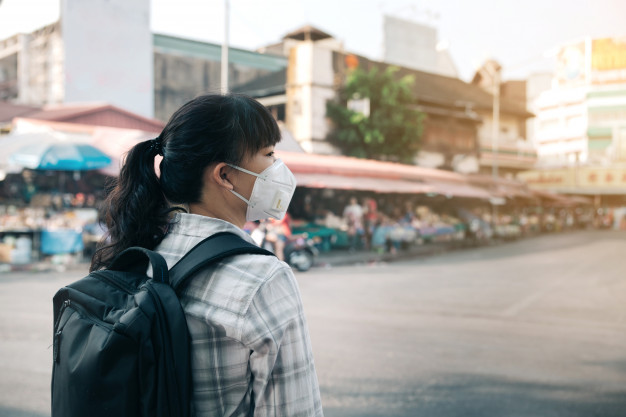By Staff
NORTHWEST ASIAN WEEKLY

UW Medical Center – Northwest admitted a patient on Jan. 28 who is being evaluated for possible coronavirus or other respiratory illnesses.
The patient is in satisfactory condition and in isolation. The hospital is working in collaboration with Public Health – Seattle & King County and test results were expected within 1 to 2 days.
In addition, three University of Washington (UW) students were recently screened for coronavirus—they developed symptoms after returning home from Wuhan. The UW Advisory Committee on Communicable Diseases announced on Jan. 28 that it received negative test results for the second of those three students. One student had previously tested negative, and the UW anticipates receiving test results soon for the third student.
Also, the Sammamish Lunar New Year Celebration scheduled for Jan. 25 was canceled “out of an abundance of caution,” organizers said. In an email to news outlets on Jan. 24, Kate Langsdorf, of the City of Sammamish, wrote, “Community organizers have decided to take precautionary measures and be sensitive to the community by cancelling all performances, activities, and events for the day. Please note that there are currently no concerns of virus outbreak from authorities in King County; this was a committee organization decision and all community partners agreed to cancel the event.”
Five people in the United States have been confirmed to have the Wuhan coronavirus. Two in California and one in Arizona were diagnosed last weekend, with another in Chicago on Jan. 24.
The first person, a man in his 30s, was hospitalized on Jan. 20 in Everett, where he’s being treated by a robot with a stethoscope and microphone that allows him to speak remotely with the doctor. The man is in an isolated room at Providence Regional Medical Center Everett that is away from other units and has a separate air filter. It was set up about five years ago during the Ebola crisis. This is the first time it was used in a real-life scenario.
He arrived at Sea-Tac Airport on Jan. 15 after visiting family members in Wuhan, China. He took group transportation to his home, where he lives alone.
The deadly new virus has infected hundreds in China, where the death toll climbed to 132 as of press time.
How is it spread?
Human coronaviruses are most commonly spread from an infected person to others through:
- The air by coughing and sneezing
- Close personal contact, such as touching or shaking hands
- Touching an object or surface with the virus on it, then touching your mouth, nose, or eyes before washing your hands
- Rarely, fecal contamination
What are the symptoms?
Symptoms of coronavirus may include:
- Runny nose
- Headache
- Cough
- Sore throat
- Fever
- A general feeling of being unwell
If you have traveled to/from Wuhan City and have symptoms, contact a healthcare provider.
If you have been notified by public health authorities that you might have been exposed, please follow instructions provided by your local health department.
How can I protect myself?
- Wash your hands often with soap and water for at least 20 seconds
- Avoid touching your eyes, nose, or mouth with unwashed hands
- Avoid close contact with people who are sick
- Avoid close contact with others
- Cover your mouth and nose with a tissue when you cough or sneeze, then throw the tissue in the trash and wash your hands
- Clean and disinfect objects and surfaces
- It is also important for people to stay at home away from others if you are sick.
What is the treatment?
There are no specific treatments for illnesses caused by human coronaviruses. Most people with common human coronavirus illness will recover on their own. However, you can do some things to relieve your symptoms, including:
- Take pain and fever medications (caution: do not give aspirin to children)
- Use a room humidifier or take a hot shower to help ease a sore throat and cough
- If you are mildly sick, you should drink plenty of liquids, stay home and rest
Staff can be reached at info@nwasianweekly.com.


